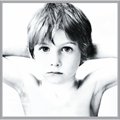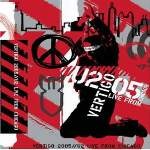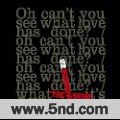U2是一支成立于1976年的爱尔兰都柏林摇滚乐队,自80年代窜起走红之后,一直到进入21世纪的今天,仍然非常活跃于全球流行音乐乐坛。音乐风格上,除了传统的另类摇滚之外,在90年代中、后期U2也曾一度尝试过将摇滚与电子舞曲融合的流行摇滚。在歌曲主题上U2的创作内容也非常广泛,尤其是对于政治性的话题并不避讳,例如对社会公平公正的追求以及对人权问题的探讨。
乐队于1976在爱尔兰成立,由四名成员组成,分别是:
Bono:原名保罗·大卫·休森(Paul David Hewson),主唱兼节奏吉他手,1960年5月10日出生于都柏林。
亚当·克莱顿(Adam Clayton):U2的贝斯手。1960年3月13日出生于英格兰牛津郡。
拉里·木伦(Larry Mullen,Jr.):U2的鼓手,他其实也是当初发起创立这乐团的提议人。1961年10月31日出生于都柏林。
The Edge:原名大卫·荷威·伊凡斯(David Howell Evans),是U2的主吉他手、钢琴手与合音。1961年8月8日出生于英格兰东伦敦。
迄今为止U2乐队的专辑销量在世界范围内已高达1亿7千,滚石杂志把U2列入全世界最伟大的100位艺人之一,由于其极高的知名度与良好的形象,今日的U2已经成为爱尔兰重要的象征之一。
风 格: Alternative Rock(另类摇滚) Pop Rock(流行摇滚) Post-Punk(后朋克) Album Rock(专辑摇滚) College Rock(学院摇滚)
无可争议,80年代英国和爱尔兰最受瞩目的伟大乐队是U2,他们1977年在都柏林的一所学校里开始了音乐生涯。博诺.沃克斯(Bono Vox,原名保罗.休森(Paul Hewson),1960年5月10日生于都柏林,主唱)、“ 刀刃”(the Edge,原名戴维.埃文斯(David Evans),1961年8月8日生于埃塞克斯的巴金)、亚当.克莱顿(Adam Clayton,1960年3月13日生于英格兰牛津,贝司手)及拉里.马伦(Larry Mullen,1960年10月1日生于都柏林,鼓手)起初曾以“回授”(Feedback)乐队的名义演唱过一些“滚石”(the Rolling Stone)及“冲浪”(The Beach Boys)乐队的老歌。后来他们更名为Hype,到了1977年改称U2,那年他们在利默里克举行的一个选拔赛上获胜,投到保罗.麦吉尼斯(Paul McGuinness)门下顺利地与爱尔兰的CBS唱片公司签了约。在爱尔兰的首张EP专辑《U2:3》及单曲“失去控制”(Out of Control)(1979)把乐队带到爱尔兰排行榜第1名的位置。他们1980年的单曲“另一天”(Another Day)再创此佳绩,这首歌还得到英国CBS公司的接受,使乐队得以与爱尔兰以外的Island唱片公司签约。在英国的首张单曲“嘀嘀哒哒11点钟”(11 O' Clock Tick Tock)由马丁.汉内特(Martin Hannett)制作,虽然很受欢迎却未能上榜。后来的“一天没有我”(A Day Without Me)和“我将跟随”(I Will Follow)两首单曲有了一定的销量,这时,他们正在为出版首张专辑做准备,它将由史蒂夫.利利怀特(Steve Lillywhite) 担任制作。
《男孩》(Boy,1980)是一张感人肺腑,激励年轻人意志的纪实性专辑,利利怀特使他们的声音有了“响亮、辉煌和具有侵略性的效果”,这正是乐队一直追求的。这张专辑的风格介于当代流行音乐同朋克时期粗糙、强硬的音乐之间,得到评论界的好评。博诺的嗓音具有一种很富煽动性的深度和共鸣;“刀刃”的吉他一直很新鲜特别;而克莱顿和马伦善于以一种军人般的准确性把这些凝聚到他们风格独特的音乐之中。同时,U2在各地做现场演出时也备受欢迎。博诺热情详溢的歌喉以及乐队明快的节奏使他们成为1981年最有前途的乐队。他们的听众也雨后春笋般地增长着,但唱片的销量平平。
美国巡演结束后,乐队回到英国,直到单曲“火”(Fire)打入排行榜前 30名,他们的成绩才越来越好。在轰动的杰出专辑《十月》(October)之后推出的另一首单曲“荣耀”(Gloria) 也甚受好评。《十月》专辑以种赞美诗般浓郁的宗教色彩,达到了近乎福音书传教的绝妙效果。1983年2月,乐队凭着一曲“新年”(New year's Day) 成为他们第1首英国榜前10名的单曲,它写的是波兰团结工会运动带来的希望。同年3月,《战争》(War)专辑不久在乐评界的一片赞扬中出版,该专辑涉及了政治和宗教,尤其是主题曲“血腥的星期天”(Sunday Bloody Sunday) ,展现了乐队超凡脱俗感人至深的演唱风格。《战争》成为第1张英国排行榜冠军的专辑。《血色天空下》(Under A Blood Red Sky)亦未让人失望,一举升至英国排行榜第2名,同时在美国榜上居第28位。
到了1984年的夏天,U2已步入摇滚精英的前列,博诺在萨兰城堡举行的演唱会上与鲍勃·迪伦(Bob Dylan)合唱了一首歌,而后U2建立了自己的公司——Mother唱片公司,意图在爱尔兰地区发掘音乐新人。《难忘的火》(The Unforgettable Fire)专辑由布赖恩.伊诺(Brian Eno)、丹尼尔.拉努瓦(Daniel Lanois)制作,显示出乐队的新风范,使之在美国唱片界与新闻界的地位逐步提高。而随后的单曲“自豪(以爱的名义)”(Pride(In The Name of Love))再现了U2词曲中已为人熟知的那股热情及人道精神。乐队所信奉的理想通过他们在“爱尔兰赈灾义演”、“大赦国际”、“小史蒂文的反种族隔离”(Little Steven's anti-Apartheid)和“太阳城”(Sun City) 等活动中的表演得到进一步展示。这期间,U2在全球巡回演出并完成了另一张专辑《乔舒亚树》(The Joshua Tree)的制作,它于1987年推出后更加巩固了U2的地位,他们成为全世界最著名的乐队之一。该专辑在英、美同时排名榜首,它体现了一种前途无量的全新音乐模式,是对U2“灵魂反省”式的歌词的补充。人们熟悉的拯救心灵的主题贯穿着U2的作品,尤其表现在“有或没有你”(With Or Without You)、“我还没找到要找的东西”(I Still Haven't Found What I'm Looking For)两首歌上,它们皆列美国排行榜榜首。
这张里程碑式的唱片推出后,乐队在1988年显得比较平淡,博诺与“刀刃”表演了罗伊.奥比森(Roy Orbison)的歌曲“神秘女郎”(Mystery Girl),并推出现场演出的双唱片《嘎嘎嗡嗡》(Rattle And Hum)和同名纪实电影。他们在晚些时候凭一首节奏与布鲁斯风格的单曲“欲望”(Desire)首次登上英国单曲榜冠军。出版下一张堪与《乔舒亚树》(The Joshua Tree)相媲美的的专辑恐怕要花很长时间,未来的唱片将在德国同拉努瓦与伊诺制作。这段时间乐队在科尔·波特(Cole Porter)的纪念专辑《红热┼蓝》(Red Hot +Blue)中露面并演唱了一首激进的“昼与夜”(Day And Night)。1991年末,单曲“苍蝇”(The Fly)升上英国榜榜首位置,取得了与“欲望”同样的佳绩。
《注意,宝贝》(Achtung Baby)是个很感人的作品,它继承了U2过去专辑的那种高尚品味,成功地确立了新的声音商标。他们的音乐灵感来自早期的后朋克和他们演艺生涯中期时的美国音乐,在这张专辑中,U2深入探索了电子乐和舞曲音乐。受70年代戴维·鲍伊(David Bowie)和80年代英国曼彻斯特现象的启发,这张专辑在声响上的电子化和冒险性要比他们以往的任何专辑都要强烈,而且并没有失去他们的核心听众,并使音乐趋向于能够抒发内心里那种最本能的真实情感。专辑中的两首单曲“不可思议的方式”(Mysterious Ways)和“一个”(One)在世界许多国家的排行榜获得冠军。1992年初,乐队精心策划了促销该专辑的全球巡回演出,这张专辑强调了U2的国际地位,是他们自70年代末以来非凡的凝聚力和稳定性的真实写照。 巡演结束后, U2回到录音棚里制作一张EP专辑,结果变成了一张长专辑 《欧共体动物园》(Zooropa),于1993夏天出版并同时进行巡回演出。《欧共体动物园》证明了他们受到的技术派电子乐和舞曲音乐的影响比《注意,宝贝》还要重,并且受到了普遍的好评。尽管这样,该专辑只卖掉了200万张而且没有产生一首热门歌曲。直到1993年底,巡回演出才结束。此时的乐队由于在音乐方向的不同,一度濒于解体。1995年,U2以一首电影《永远的蝙蝠侠》插曲“抓住我,刺激我,亲吻我,杀死我”(Hold Me, Thrill Me, Kiss Me, Kill Me)重新露面,此曲由内利.胡珀(Nellee Hooper)制作。年底,乐队与布赖恩.伊诺合作以“旅客”(Passengers)的名义录制了一张专辑《原声音乐,第1集》(Original Soundtracks, Vol. 1),但在评论界和商业上只获得了极弱的反应。
许多U2的铁杆歌迷对他们这个“旅客”计划十分不满,乐队允诺他们将在1996年秋出版的下一张专辑中录制一张摇滚乐风格的唱片。但这张经过漫长的等待的专辑直到1997年春天才与人们见面,而且也不是像他们所说的那样是“一张摇滚风格的唱片”。在推迟发行专辑的期间,他们出版了几首单曲,包括“迪斯科”(Discotheque),乐队通过这首单曲有意透露了他们的音乐方向──新专辑中将有大量的技术化音乐、舞曲和电子乐,最后这张专辑命名为《流行曲》(Pop)。但出人意料的是,它在市场的销售势头十分看好,并且获得了在U2的演艺生涯中最好的评论。
by Stephen Thomas Erlewine
Through a combination of zealous righteousness and post-punk experimentalism, U2 became one of the most popular rock & roll bands of the 80s. Equally known for their sweeping sound as for their grandiose statements about politics and religion, they were rock & roll crusaders during an era of synthesized pop and heavy metal. The Edge provided the group with a signature sound by creating sweeping sonic landscapes with his heavily processed, echoed guitars. Though the Edges style wasnt conventional, the rhythm section of Adam Clayton and Larry Mullen, Jr., played the songs as driving hard rock, giving the band a forceful, powerful edge that was designed for arena rock. And their lead singer, Bono, was a frontman who had a knack of grand gestures that played better in arenas than small clubs. Its no accident that footage of Bono parading with a white flag with Sunday Bloody Sunday blaring in the background became the defining moment of U2s early career — there rarely was a band that believed so deeply in rocks potential for revolution as U2, and there rarely was a band that didnt care if they appeared foolish in the process. During the course of the early 80s, the group quickly built up a dedicated following through constant touring and a string of acclaimed records. By 1987, the bands following had grown large enough to propel them to the level of international superstars with the release of The Joshua Tree. Unlike many of their contemporaries, U2 was able to sustain their popularity in the 90s by reinventing themselves as a postmodern, self-consciously ironic dance-inflected pop/rock act, owing equally to the experimentalism of late-70s Bowie and 90s electronic dance and techno. By performing such a successful reinvention, the band confirmed its status as one of the most popular bands in rock history, in addition to earning additional critical respect.
With its textured guitars, U2s sound was undeniably indebted to post-punk, so its slightly ironic that the band formed in 1976, before punk had reached their hometown of Dublin, Ireland. Larry Mullen, Jr. (born October 31, 1961; drums), posted a notice on a high-school bulletin board asking for fellow musicians to form a band. Bono (born Paul Hewson, May 10, 1960; vocals, guitar), the Edge (born David Evans, August 8, 1961; guitar, keyboards, vocals), Adam Clayton (born March 13, 1960; bass), and Dick Evans responded to the ad, and the group formed as a Beatles and Stones cover band called the Feedback, before changing their name to the Hype in 1977. Shortly afterward, Dick Evans left the band to form the Virgin Prunes. Following his departure, the group changed its name to U2.
U2s first big break arrived in 1978, when they won a talent contest sponsored by Guinness; the band were in their final year of high school at the time. By the end of the year, the Stranglers manager, Paul McGuinness, saw the band play and offered to manage them. Even with a powerful manager in their corner, the band had trouble making much headway — they failed an audition with CBS Records at the end of the year. In the fall of 1979, U2 released their debut EP, U2 Three. The EP was available only in Ireland, and it topped the national charts. Shortly afterward, they began to play in England, but they failed to gain much attention.
U2 had one other chart-topping single, Another Day, in early 1980 before Island Records offered the group a contract. Later that year, the bands debut, Boy, was released. Produced by Steve Lillywhite, the records sweeping, atmospheric but edgy sound was unlike most of its post-punk contemporaries, and the band earned further attention for its public embrace of Christianity; only Clayton was not a practicing Christian. Through constant touring, including opening gigs for Talking Heads and wet T-shirt contests, U2 was able to take Boy into the American Top 70 in early 1981. October, also produced by Lillywhite, followed in the fall, and it became their British breakthrough, reaching number 11 on the charts. By early 1983, Boys I Will Follow and Octobers Gloria had become staples on MTV, which, along with their touring, gave the group a formidable cult following in the U.S.
Released in the spring of 1983, the Lillywhite-produced War was U2s breakthrough release, entering the U.K. charts at number one and elevating them into arenas in the United States, where the album peaked at number 12. War had a stronger political message than its predecessors, as evidenced by the U.K., college radio, and MTV hits Sunday Bloody Sunday and New Years Day. During the supporting tour, the band filmed its concert at Colorados Red Rocks Amphitheater, releasing the show as an EP and video titled Under a Blood Red Sky. The EP entered in the U.K. charts at number two, becoming the most successful live recording in British history. U2 had become one of the most popular bands in the world, and their righteous political stance soon became replicated by many other bands, providing the impetus for the Band Aid and Live Aid projects in 1984 and 1985, respectively. For the follow-up to War, U2 entered the studios with co-producers Brian Eno and Daniel Lanois, who helped give the resulting album an experimental, atmospheric tone. Released in the fall of 1984, The Unforgettable Fire replicated the chart status of War, entering the U.K. charts at number one and reaching number 12 in the U.S. The album also generated the groups first Top 40 hit in America with the Martin Luther King, Jr., tribute (Pride) In the Name of Love. U2 supported the album with a successful international tour, highlighted by a show-stealing performance at Live Aid. Following the tour, the band released the live EP Wide Awake in America in 1985.
While U2 had become one of the most successful rock bands of the 80s, they didnt truly become superstars until the spring 1987 release of The Joshua Tree. Greeted with enthusiastic reviews, many of which proclaimed the album a masterpiece, The Joshua Tree became the bands first American number one hit and its third straight album to enter the U.K. charts at number one; in England, it set a record by going platinum within 28 hours. Generating the U.S. number one hits With or Without You and I Still Havent Found What Im Looking For, The Joshua Tree and the groups supporting tour became the biggest success of 1987, earning the group the cover of respected publications like Time magazine. U2 decided to film a documentary about their American tour, recording new material along the way. The project became Rattle & Hum, a film that was supported by a double-album soundtrack that was divided between live tracks and new material. While the album Rattle & Hum was a hit, the record and film received the weakest reviews of U2s career, with many critics taking issue with the groups fascination with American roots music like blues, soul, country, and folk. Following the release of Rattle & Hum, the band took an extended hiatus.
U2 reconvened in Berlin 1990 to record a new album with Eno and Lanois. While the sessions for the album were difficult, the resulting record, Achtung Baby, represented a successful reinvention of the bands trademark sound. Where they had been inspired by post-punk in the early career and American music during their mid-career, U2 delved into electronic and dance music with Achtung Baby. Inspired equally by late-70s Bowie and the Madchester scene in the U.K., Achtung Baby was sonically more eclectic and adventurous than U2s earlier work, and it didnt alienate their core audience. The album debuted at number one throughout the world and spawned Top Ten hits with Mysterious Ways and One. Early in 1992, the group launched an elaborate tour to support Achtung Baby. Dubbed Zoo TV, the tour was an innovative blend of multimedia electronics, featuring a stage filled with televisions, suspended cars, and cellular phone calls. Bono devised an alter ego called the Fly, which was a knowing send-up of rock stardom. Even under the ironic guise of the Fly and Zoo TV, it was evident that U2 was looser and more fun than ever before, even though they had not abandoned their trademark righteous political anger.
Following the completion of the American Zoo TV tour in late 1992 and before the launch of the European leg of the tour, U2 entered the studio to complete an EP of new material that became the full-length Zooropa. Released in the summer of 1993 to coincide with the tour of the same name, Zooropa demonstrated a heavier techno and dance influence than Achtung Baby and it received strong reviews. Nevertheless, the album stalled at sales of two million and failed to generate a big hit single. During the Zooropa tour, the Fly metamorphosed into the demonic MacPhisto, which dominated the remainder of the tour. Upon the completion of the Zooropa tour in late 1993, the band took an extended break. During 1995, U2 re-emerged with Hold Me, Thrill Me, Kiss Me, Kill Me, a glam rock theme to Batman Forever that was produced by Nellee Hooper (Björk, Soul II Soul). Later that year, they recorded the collaborative album Original Soundtracks, Vol. 1 with Brian Eno, releasing the album under the name the Passengers late in 1995. It was greeted with a muted reception, both critically and commercially.
Many hardcore U2 fans, including drummer Larry Mullen, Jr., were unhappy with the Passengers project, and U2 promised their next album, to be released in the fall of 1996, would be a rock & roll record. The album took longer to complete than usual, being pushed back to the spring of 1997. During its delay, a few tracks, including the forthcoming first single Discotheque, were leaked, and it became clear that the new album was going to be heavily influenced by techno, dance, and electronic music. When it was finally released, Pop did indeed bear a heavier dance influence, but it was greeted with strong initial sales, and a few positive reviews. In late 1998, the group returned with Best of 1980-1990, the first in a series of hits collections issued in conjunction with a reported 50 million dollar agreement with Polygram.
Three years after the mediocre response to Pop, U2 teamed up with Eno and Lanois once again to release All That You Cant Leave Behind in fall 2000. It topped charts around the world, reached number three in America, earned the band Grammy Awards for the singles Beautiful Day and Walk On, and became their biggest-selling record in years. (The Elevation tour that followed also brought U2 a hefty paycheck.) Steve Lillywhite, producer of the early-80s landmarks Boy, October, and War, returned to the helm for U2s next record, How to Dismantle an Atomic Bomb. Released in November 2004, it hit the top of the Billboard charts and quickly gained platinum status. The album also garnered eight Grammy Awards, including Album of the Year, Rock Album of the Year, and Song of the Year (for Sometimes You Cant Make It on Your Own).





![Sometimes You Cant Make It on Your Own [CD-SINGLE]](http://img.5nd.com/86/photo/2005531101147.jpg)




